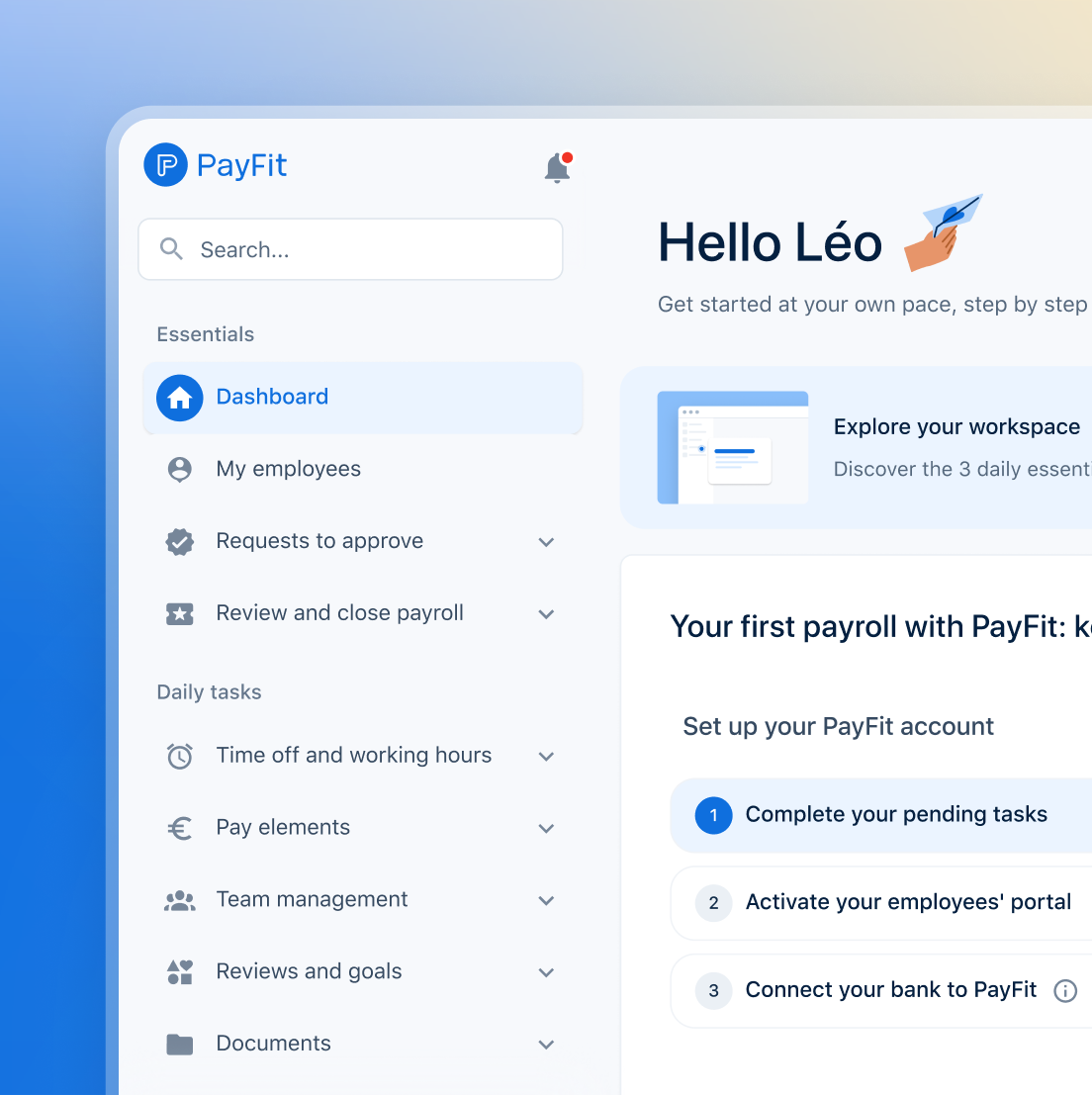✨ Health insurance, now in PayFit - learn more
💷 All the rates & thresholds you need to know for 25/26...right here
✨ The Payroll Journey: Start, Scale & Succeed Globally - learn more
✨ Health insurance, now in PayFit - learn more
💷 All the rates & thresholds you need to know for 25/26...right here
✨ The Payroll Journey: Start, Scale & Succeed Globally - learn more

As your business grows, so does your team. With each new hire, the need for clear and legally sound employment contracts becomes paramount. An employee contract is a legally binding agreement between an employer and an employee. It sets out the terms and conditions of the employment relationship. While some terms are verbally agreed upon, a written contract provides clarity and protection for both parties, minimising the risk of future disputes. This guide will walk you through the essentials of employee contracts in the UK.
In the UK, employers are legally required to provide employees and workers with a written statement of employment particulars from their first day of employment. This document forms the basis of the employment contract and should contain:
The names of the employer and employee.
The date the formal, contractual employment starts, and the effective date continuous employment began, if different.
The job title, or a brief description of the work involved.
The place of work.
Pay details, indicating the rate and frequency of payment.
Working hours, and any terms regarding overtime.
Holiday entitlement and holiday pay.
Sick leave and sick pay arrangements.
The details of any pension arrangements.
The notice period required of both the employer and employee for the termination of the employment contract.
Indications on any disciplinary and grievance procedures.
Details of any collective agreements that directly affect the terms and conditions of employment.
While this covers the statutory minimum, a comprehensive employee contract sample might also include clauses on confidentiality, intellectual property, and data protection, to further safeguard your business.

It’s essential to understand the distinction between different types of workers, as their rights and contracts will vary. The main categories are ‘employees’ and ‘workers’.
The contract worker vs employee debate is a common one. An ‘employee’ works under a contract of employment, meaning they are committed to working for the employer, who in turn is obliged to provide the employee with work. Employees have access to the full range of statutory employment rights, including protection against unfair dismissal after a qualifying period, and statutory redundancy pay.
A ‘worker’, on the other hand, has a more casual employment relationship. They are not guaranteed work and can turn it down. While they don’t have the same level of protection as employees, they are still entitled to certain rights, such as the National Minimum Wage, paid holiday, and protection against discrimination.
Zero-hours contracts are a type of worker agreement. The rights of employees on zero hour contracts (who are legally classed as ‘workers’) include:
The National Minimum Wage
Paid annual leave
Pay for work-related travel
Protection from detriment if they refuse to work
Crucially, exclusivity clauses in zero-hours contracts are unenforceable. This means a worker on a zero-hours contract has the right to work for another employer. The future of these contracts is a topic of ongoing debate. For more on this, you can read about the potential for Labour to abolish zero-hour contracts.
You can amend an existing employment contract, but you must have the employee’s agreement. Any amendments should be discussed and agreed upon in writing.
A breach of an employment contract by an employee or employer occurs when one party fails to adhere to the agreed terms. For an employee, this could be failing to work their notice period. For an employer, it could be failing to pay the agreed salary. A serious breach can lead to legal action, including claims in an employment tribunal or civil court. For more information on this, see our blog post on terminating contracts.
Not having a written contract, or having one that is unclear, can lead to significant legal and financial risks for your business. It can result in disputes over pay, hours, and holiday entitlement, and could leave you vulnerable to claims of unfair dismissal or breach of contract.
This article provides a general overview, but it is not a substitute for professional legal advice. Given the complexities of employment law, it is always best to consult with a solicitor or a HR specialist when drafting or amending employment contracts, in order to ensure your business is fully compliant and sufficiently protected.


Learn what the Carer’s Leave Act means in 2026: carers’ rights, how leave works, notice rules, postponement, and policy steps for employers.

Is paternity leave 14 working days in the UK in 2026? Learn how long paternity leave lasts, who is eligible, how pay works and what notice is required.

Learn what Labour’s 4-day week plans mean in 2026, plus your options now: flexible working, compressed hours, contracts, and HR actions.

What is the Alabaster ruling? Learn how pay rises during maternity leave affect Statutory Maternity Pay (SMP) and how to calculate arrears correctly.

A guide for employers on the Neonatal Care Act, in force since April 2025. Learn about leave entitlement, pay eligibility, notice periods & the two-tier system.

A new flexible working law came into effect in 2024. Employees have more say over how & when they work. Understand what it means for you as an employer.

See what's new in PayFit
New features to save you time and give you back control. Watch now to see what's possible